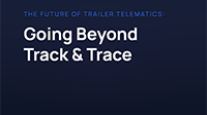Senior Reporter
Carriers See Growth for Global Trade, Blockchain Technology, Dedicated

This story appears in the April 17 print edition of Transport Topics.
ORLANDO, Fla. — A panel of top executives from three major fleets emphasized the importance of international trade, the emergence of blockchain technology for freight transactions and the value of dedicated service during a shippers conference here.
“All of our jobs are trade jobs. So we are really concerned about trade, the approach to trade. I think we’ve seen some promising signs lately since Secretary [Wilbur] Ross took command of the Commerce Department,” said Michael Ducker, CEO of FedEx Freight. Ducker, Eric Fuller, CEO of U.S. Xpress Enterprises, and Richard McArdle, president of UPS Freight, spoke during a session at the Nasstrac Shippers Conference and Transportation Exposition on April 9-12.
Ducker, who runs the FedEx less-than-truckload business, added that he welcomed a recent softening in the U.S.-China trade positions. “I think there is a lot that can be done there to solidify our position as a leader in trade, and that’s exactly where we should be,” he said. “To go the other way, back to the 1930s and the era of the Smoot-Hawley Tariff Act [which raised U.S. tariffs on more than 20,000 imported goods] would just be a regression we can’t afford as a country. We need to embrace trade, make it free and fair. Certainly, there are improvements that can be made.”
Including, updates to NAFTA, McArdle said.
“Maybe it is time to update NAFTA,” he said. “The digital economy wasn’t in place when NAFTA was first negotiated.”
McArdle also noted that customs practices are ripe for review. “Moves to facilitate trade are what these agreements are about,” he said.
The digital economy could bring some needed change to the LTL industry, Ducker said. That industry is “far too paper-intensive,” he said. “We have to get rid of that over time.”
Ducker and McArdle both urged shippers to take advantage of technology to automate back-end operations.
“Let’s go down this paperless journey,” McArdle said. “Let’s get further than we are now, and simplify pricing, pickups, appointments. I think we can find ways to let trusted technology talk back and forth and make it easier for everybody.”
McArdle pointed specifically to blockchain, an emerging database technology that is being tested by banks and others. “If you participate in the supply chain and you don’t know about blockchain, it is probably something you want to get smart on, fast. Start to read about it, look at it.”
He defined blockchain as a secure, distributed digital ledger of complete business flows across a peer-to-peer network that enables smart contracts.
“I truly feel it will be a disrupter; there will be winners and losers. IBM and Wal-Mart are deep into this. They are looking in the supply chain, running some tests right now,” McArdle said. “We have folks in our organization taking a look at it.”
In November, Bloomberg News reported blockchain’s key attribute is its trustworthiness, meaning it is difficult to reverse or change data once it is has been recorded. The blockchain database also can hold much more data than what retailers get today, providing tools for more detailed analysis.
Wal-Mart is using it to track food shipments to better identify where health-related problems occurred, among other uses, according to Bloomberg News.
South of the border, U.S. Xpress is looking to deepen its business in Mexico and expand its dedicated contract carriage as it ascends to the position of North America’s largest privately held truckload carrier, after Schneider’s shift April 6 to a publicly traded company, Fuller said.
Fuller said US Xpress has done 28 acquisitions over about 20 years and now is focused on “making sure we are getting everything we can out of the trucks [including 7,000 tractors] and the business we have.”
About 40% of its revenue is from dedicated arrangements, 15% from brokerage and 25% from over-the-road operations, he said.
“Our long-term plan is to get to 50, 25, 25,” Fuller said. “It’s more of a five-year plan.”
Also, Mexico is a big growth area for the company, he said.
Xpress International Services is its cross-border operation serving Mexico.
It is a seamless operation where the freight stays in the same trailer and is carried by one of its 400 trucks in Mexico, Fuller said.
“As more opportunities grow in Mexico, we think that that is a big growth opportunity for us, as well,” he said.




